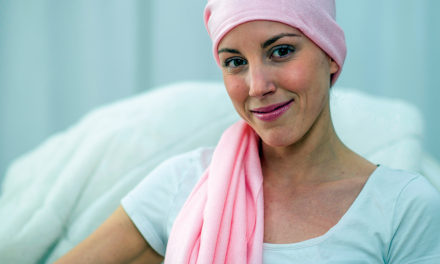We love to celebrate our kids’ firsts. First smile. First word. Other firsts are faced with more trepidation. First driving lesson. First gyno appointment. If you have a daughter, your heart probably goes out to her about this last one, especially if you have a personal aversion to the stirrups and speculum. First, let’s take that concern off the table. “No woman needs a Pap smear before age 21,” says Victoria M. Petty, M.D., a gynecologist at Capital Health Gynecology. This means that your daughter’s initial visit will likely be more like a “normal” doctor’s appointment than yours was.
More reassurance for your girl: “I cannot tell you the number of patients who are relieved after their first exam,” says Dr. Petty. “They come in here thinking it’s a horrible thing, and it’s really not. It’s always made to sound worse than it really is.” And when your daughter does have her first pelvic exam or Pap test, it’s likely to be less uncomfortable than those in days gone by. “We have very small speculums we can use, even a patient is virginal,” explains Dr. Petty. “If a patient is using tampons, they’d be totally fine with the exam.”
All that said, Dr. Petty adds that “a lot of girls have to see us sooner than age 21 for a host of reasons.” Here’s how to know when it’s time to schedule your daughter’s first exam—and some surprising ways it might impact her quality of life and overall health.
PERIODS AND PUBERTY
Even in the closest mother-daughter relationship, detailed discussions about menstrual periods can be rare. You might hear about your daughter’s cycle when she’s got cramps, but she might not be telling you how heavy her flow is. And you may not notice (without checking a calendar or using an app) if her cycle is erratic. Since she’s new to all of this, she herself may be unaware if her periods are normal or not.
Problems that can be helped by a gynecologist include (but aren’t limited to) bladder issues, vaginal itching, irregular periods, painful periods, abnormal bleeding, or difficulty using menstrual products. “Sometimes girls need instruction on inserting a tampon, but other times they can’t get a tampon in because their opening is too small,” she says. “It’s called a microperforate hymen, and I do [outpatient] surgery for that all the time.”
A gynecologist can also help girls tackle acne, menstrual headaches, or other issues related to puberty. Birth control pills often help regulate periods, decrease their severity, and clear up skin. “A lot of mothers don’t realize that birth control is safe,” adds Dr. Petty. “The pills today are very well tolerated, very low dose, and cause very few side effects. Young women do very, very well with them.”
And she doesn’t believe that being on the pill for these reasons will inspire girls to have sex sooner. “If a patient is not ready for sex, she won’t have sex just because she’s
on birth control now,” she says.
HEALTH AND SAFETY
“Obviously, if you’re sexually active, you have to see a gynecologist for numerous things,” says Dr. Petty. This includes testing for sexually transmitted diseases such as gonorrhea or chlamydia, as well as administering the Human Papillomavirus (HPV) vaccine, which is recommended for females and males up to age 26. Some doctors administer HPV vaccine to kids as young as 9 (male and female).
If you’re not sure about your daughter’s sex life, it’s not a bad idea to schedule a visit sooner rather than later. Whether your daughter is having intercourse or not, the gynecologist will go through a menstrual, sexual, medical, and surgical history with her. It helps for Mom to do this with her (before she’s an adult) since parents generally have a better idea of family health history than kids do. Don’t be surprised, though, when the doctor asks for a few minutes alone with your daughter to discuss smoking, birth control, STDs, safe sex, and other sensitive issues—even if she’s as young as 12. And tell her not to be worried about this chat either. “The first thing I tell the girl is, ‘Everything you say is confidential, but I need to know this to take appropriate care of you,’” she says. “They’re extremely honest.” In fact, they’re likely to reveal things to the doctor that they’d never tell you. And that’s a good thing.
IMPORTANT COLLEGE PREP
“Even if your daughter is not having any problems and is not sexually active, Dr. Petty often recommends bringing her in before she goes to college. “That way we have a chart on the patient, so if she begins a relationship and wants to get on birth control, she can call us,” says Dr. Petty. “If we have that relationship established, we can help her out if she has any issues.” But even if you’ve already missed that opportunity, it’s not too late to start—talk to your daughter about making an appointment today. After all, it is one of her “firsts,” and it’s an important part of her health regimen that she will maintain for the rest of her life.





